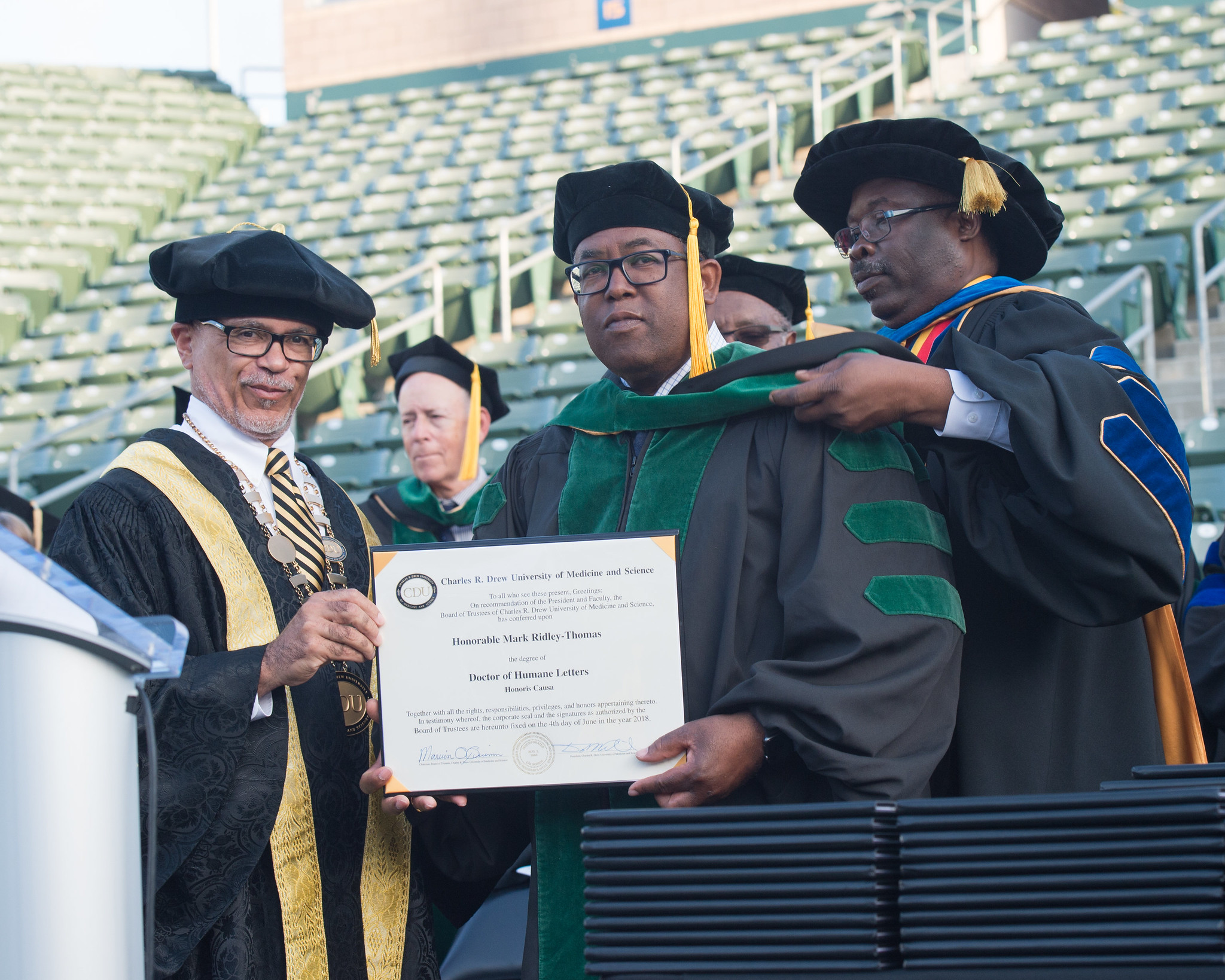MRT on POINT
Universities Must Play A Central Role In Addressing Homelessness
By Mark Ridley-Thomas, PhD
Originally featured in the April 20, 2023 Praxis newsletter
Thank you for reading my Q&A last week when I sought to confirm my continuing commitment to addressing Los Angeles’ defining moral crisis, which means it should be the top priority for all of our decision makers. Urgency and thoughtfulness must inform our interventions and innovations—in both the public sector and the private sector.
Many of you commented on not knowing about my academic credentials, that’s because in the past I never really emphasized them. Degrees and credentials are best accented in the academy, which has been an important part of my biography and journey. However, my major focus (for thirty-two years) has been the laboratory of public service as an elected official—a servant leader.
Truthfully, my focus on homelessness has always been related to my academic preparation from undergraduate through graduate studies. While my doctoral degree, (earned in 1989) is in social ethics, which is a subset of moral philosophy combined with the social sciences; my concentration was social criticism and social change.
My academic background causes me to believe every institution of higher learning should adopt normative public discourse, locate its moral compass and address the systemic inequities facing the university community in the context of societal injustices—homelessness being the top priority. It makes no difference whether it’s UC, CSU, Community Colleges, or the range of private colleges and universities that make the LA region the most academically endowed in the world—full stop! What a powerful set of resources coupled with a huge opportunity to advance social change.
Ask your alma mater what it’s doing to address the homeless crisis and how it’s doing it. Is it a presidential, faculty senate and student body priority? Is it intersectional and interdisciplinary in its approach? Do gender and race analyses inform that work? This is the analytical framework and constructive pursuit of social criticism and social change as it relates to homelessness.
To be clear, history and context matter. Take for example, the Charles R. Drew University of Medicine and Science (CDU).
CDU is a private, non-profit, historically black, minority-serving university located in the community of Willowbrook (unincorporated Los Angeles County). The university was founded in 1966 in response to the Watts rebellion (1965) to train health providers of color who would serve South Los Angeles and adjacent communities. Appropriately, CDU has been recognized as the 2nd most diverse and the 3rd ranked “value added” university in the United States.
Pursuant to the unforgettable events of social unrest in the 1960s the McCone Commission Report (1965) and the Kerner Commission Report (1968) made it abundantly clear that the Watts/Willowbrook community suffered from substantial racial disparities in education, housing, employment and income that are recognized as social determinants of health. Remarkably, many of these deficits are as persistent today as they were over fifty years ago and CDU is geographically located and particularly well suited to make a defining difference. With approximately 250 other colleges and universities in the LA area there’s a lot that can and should be done by these uniquely important institutions in facing these systemic inequities.
To be sure, the homelessness crisis stands out as it has since grown to become a major contributor to such inequities in Los Angeles today. By all accounts, homelessness is the most complex social justice challenge facing the Los Angeles region with an undeniably profound racial inequity overlay.
I firmly believe that with all of the assets, resources and endowments at our collective disposal, we are morally obliged to lean in with uncommon purpose and imagination. Indeed, we must remain ever vigilant in the face of what might otherwise be reduced to another intractable civic problem. By now, I certainly hope we appreciate homelessness is not just another social ill. It is a lot more than that and it goes to the heart of who we are as a community of people who refuse to accept the status quo as morally acceptable or civically tenable.


